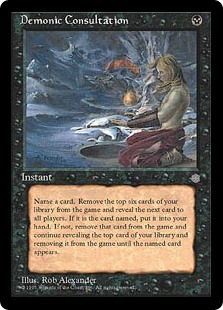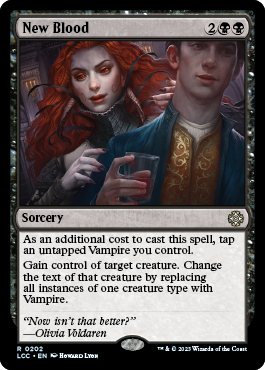
On any judge call, in the abstract, it’s better to be quicker than longer. Every minute added to a time extension is another minute that
might end up delaying the whole tournament, if this match happens to be the last one playing. And more than that — players come to events to game, not to sit around talking to judges. That said, it’s more important to be right than fast. It’s always better to take an extra moment to doublecheck with another judge than take a chance on being wrong. Getting a ruling wrong will take a lot more time to sort out than the few minutes it might take to consult with another judge.
Here are a few tips for stepping away from the table and getting a second opinion like a pro.

1) Start the conversation by letting the other judge know, concisely, what’s going on. They might think you’re asking about an interesting hypothetical or a situation from a local event last month — it’s important to let them know right away that this is a live call with players waiting on an answer. Start off with something to set the stage, like: “Hey, live call – I’d like to do a backup,” “Give me a sanity check on this recent rules change,” or “I think I have a cheating investigation.” That way the other judge knows what to focus on as you begin sharing the situation.

2) Get out of earshot, even if a second judge is right there. That will give you the freedom to speak freely. If you’re within earshot of the players it gets a lot more awkward to say all kinds of things. Whether you want to discuss the possibility of cheating or keep up a good front as you admit you have no idea how replacement effects work, there are some things better said in private, before going back to the table. This is also why a Team Lead or Head Judge is usually going to be happy to be briefed while walking to the table, but may ask you to stop before finishing the journey – saving time by walking and talking is great but they don’t want to finish the conversation within earshot of the players.

3) Note the table number! Once upon a when, long ago, I was very excited to be at a GP and experience my first appeal. I was very young and silly, and I was giddy to go run up to the stage and brief the head judge, sure I would soon be collecting all kinds of kudos for being the Most Correct Judge. I brought the head judge up to speed and we started the return trip to the match.
Did you know that the average tournament has more matches than judges? It’s true! I learned this the hard way when I began the march back to the table only to realize I had absolutely no idea where to go. I spent a few very embarrassing minutes wandering in circles around the event hall with the HJ in tow, looking for any sign of the players, a raised hand, or anything else to guide us in. Eventually the HJ had to tell me he was giving up and we were done looking. The players had presumably called another judge or given up and solved it themselves. Or perhaps they’re still there to this day.
That’s not a good conversation to have.
So, let my mistake be your gain: when leaving the table for an active call, make sure you remember the table number. Some people like to write it down, if your event is using match slips you can grab that, and I’ve even seen some judges take the table tent with them. I don’t think any of these is substantially better or worse than the others — the important part is just to make sure you can get back to the match in a timely manner.

4) The first judge on the call is the judge for the call. It’s theirs until they give it away. If you’re a more experienced judge and someone newer comes to you for a sanity check or you share a language with the players but the first judge doesn’t, it can be easy to just take over the call – often without realizing it until it’s too late.
This is less than ideal for a number of reasons. For one, it can undermine the first judge, both to the players and in their own mind. This is something that disproportionately hurts some demographics more than others — think about it a moment and you will get who, and why. It’s important to be there for each other.
Second, we don’t want players to be able to pick their judge. If a particular judge is the only one taking calls for players who speak a given language at an event, it could start to look like favoritism to the other players even if everything is above board. This could be a real issue – look at the requirement that judges in competitive REL events can’t also play in them like they can in regular REL ones. Is this because there’s serious worry that judges would cheat while playing? Eh, perhaps, but it’s also to guard against any perception of bias.

And lastly, it’s important for newer judges to get a chance to handle the tough calls and build experience. If every time someone newer goes to an old hand for a sanity check the old hand were to steal the call, no one could “catch up.” If we want less experienced judges to be able to build their skills (hint: we do), they have to keep the calls they start. The only exception should be after they’ve finished giving a ruling, if there’s an appeal.
Occasionally, we all realize we’re in over our heads. The first time dealing with explaining a particularly tricky rules interaction, walking players through a complicated backup, or issuing a game loss to a testy player can be quite nerve racking. If the first judge to the call wants the older hand to be the one to deliver the ruling so they can observe and take notes, it may be appropriate for the first judge to take a backseat – but it’s important they choose it.
